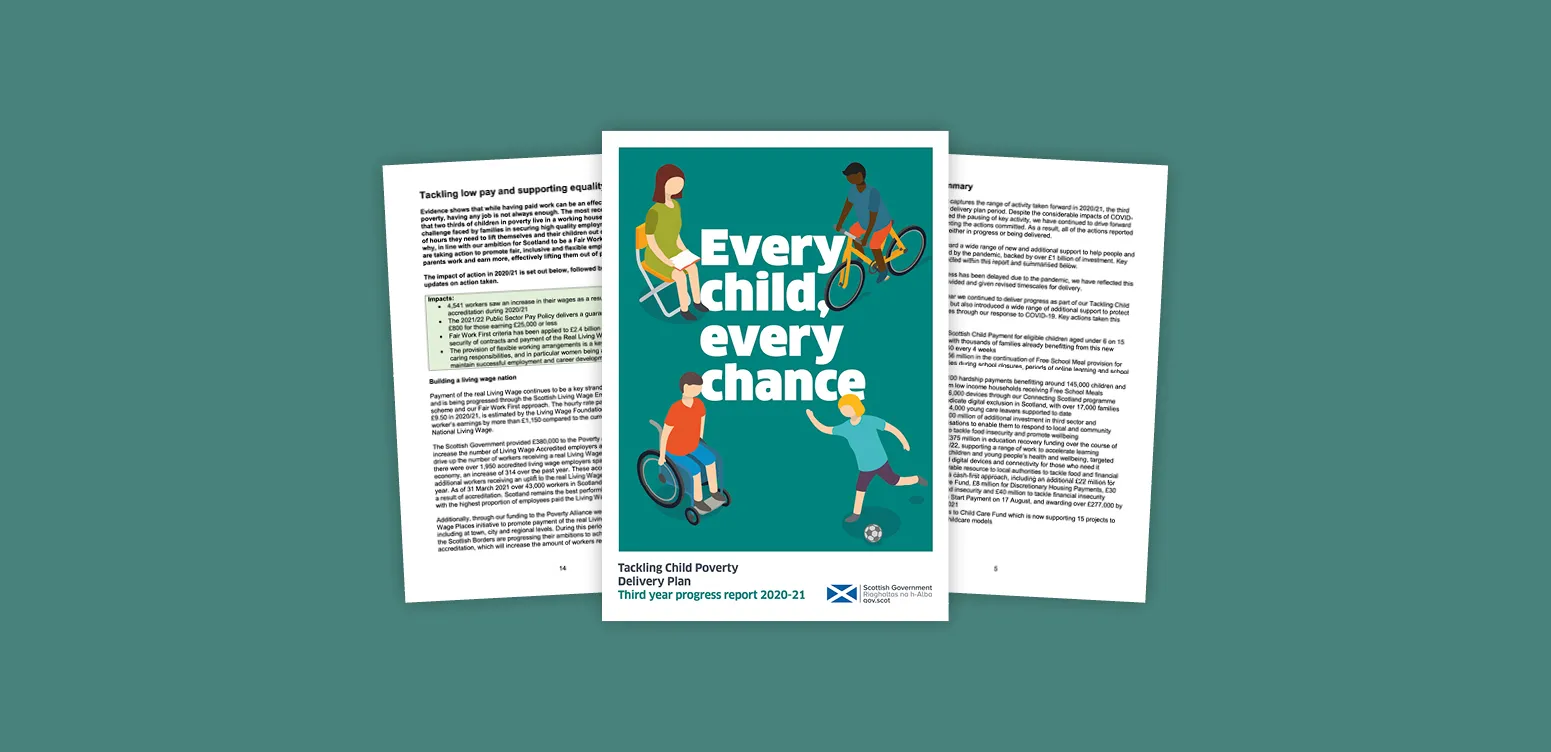Scottish Government report acknowledges key role of housing in tackling child poverty
Government releases Tackling Child Poverty Delivery Plan Third year progress report 2020-21.
Government releases Tackling Child Poverty Delivery Plan Third year progress report 2020-21.

The Scottish Government has published its the third annual progress report on its delivery plan for tackling child poverty. The report, which will inform the government’s long-term strategy, covers the period immediately following the country’s move into a national lockdown in response to Covid-19 and reflects the progress delivered to 31 March 2021 and the response to the pandemic to support low-income families.
Over the course of 2020/21 the Scottish Government made over £1 billion of additional investment to help local communities through the pandemic and to build resilience in public services. This included over half a billion through the Communities Funding Package, distributed across councils, local services and initiatives to support those in need. A further £479 million was awarded to local councils in addition to this to meet demand for local services. In total, the Scottish Government estimates that around £2.5 billion was invested in support targeted at low-income households in 2020/21, including almost £1 billion focused on supporting children in those households.
However, the government said that “as a result of the restrictions in place to protect people’s lives and wellbeing” it was not able to deliver the progress it had anticipated for key programmes, including the delivery of affordable homes. Regarding the completion of this programme, the government said it has “agreed ambitious and realistic timescales for completion”.
Looking at the role of housing in tackling child poverty, the report acknowledges the “significant” link between poverty and delivering warm, energy efficient, good quality affordable homes. The Scottish Government points to its Housing to 2040 Strategy commitments, including delivering 100,000 homes by 2032 and the development of its Rented Sector Strategy, as measures that it said will help to address child poverty.
In terms of fuel poverty, the Scottish Government said that work on its long-awaited strategy has resumed, and it will be finalised in 2021. The independent Scottish Fuel Poverty Advisory Panel will also be recruited this year and will provide advice to ministers on progress in tackling fuel poverty.
The report commits to year “a strong focus on recovery and renewal” in the year ahead, building back in a “fairer way” and using the learning from the government’s Covid-19 response.
The Scottish Government said: “We are clear that further progress is needed on child poverty and that all in our society have a role to play. Alongside delivering new and existing commitments, we will work collaboratively across government and with key partners to develop our next Tackling Child Poverty Delivery Plan – setting out further ambitious action to deliver progress on the child poverty targets set.”
SFHA Chief Executive Sally Thomas said: “We know that housing associations and co-operatives have a key role to play in tackling child poverty as their warm energy efficient homes, lower than private sector rents, and support services are intrinsic to its reduction.
“Our members will continue to play their part and will work with the Scottish Government to deliver affordable housing during this parliament and beyond. SFHA will work with the government on the development of its Rented Sector Strategy as there is a long-established key role of affordability in housing associations and co-operatives' rent setting process.”